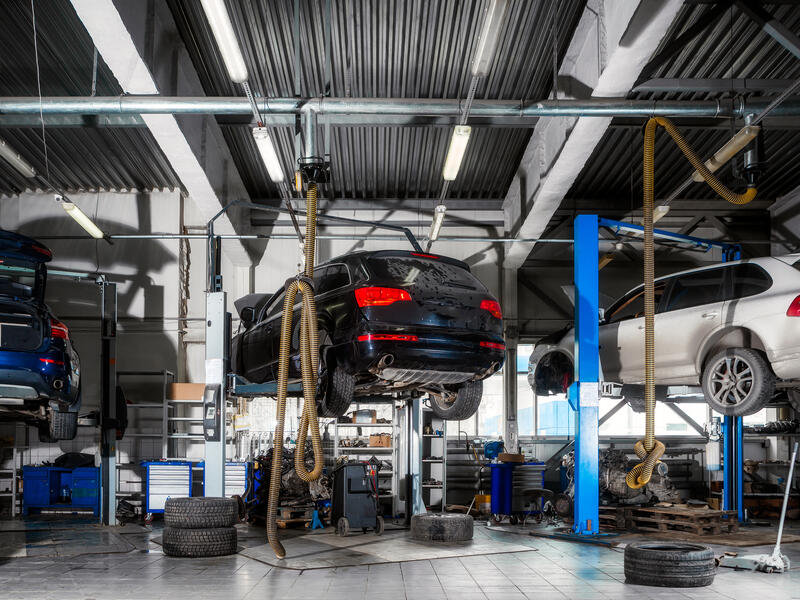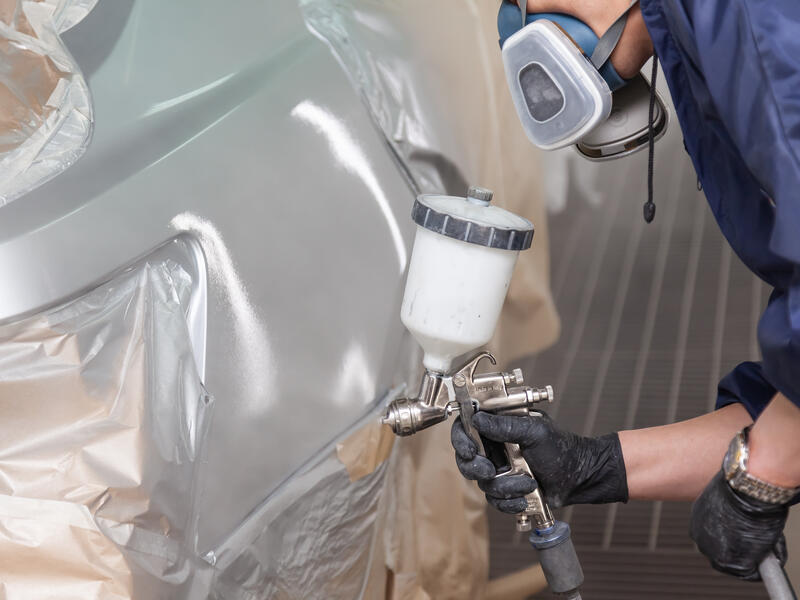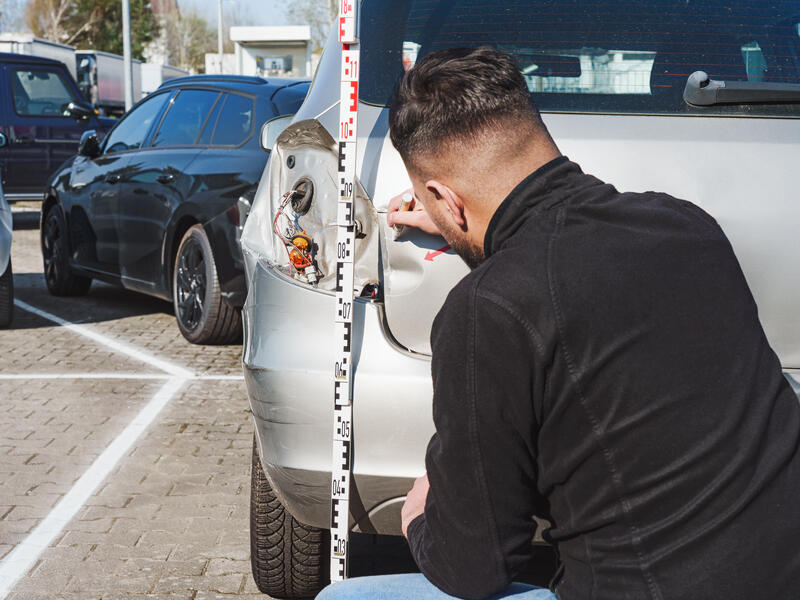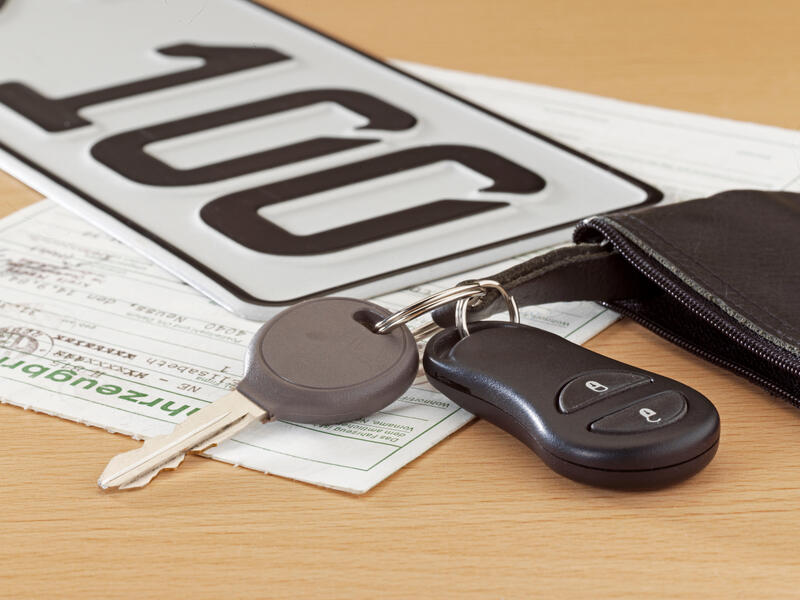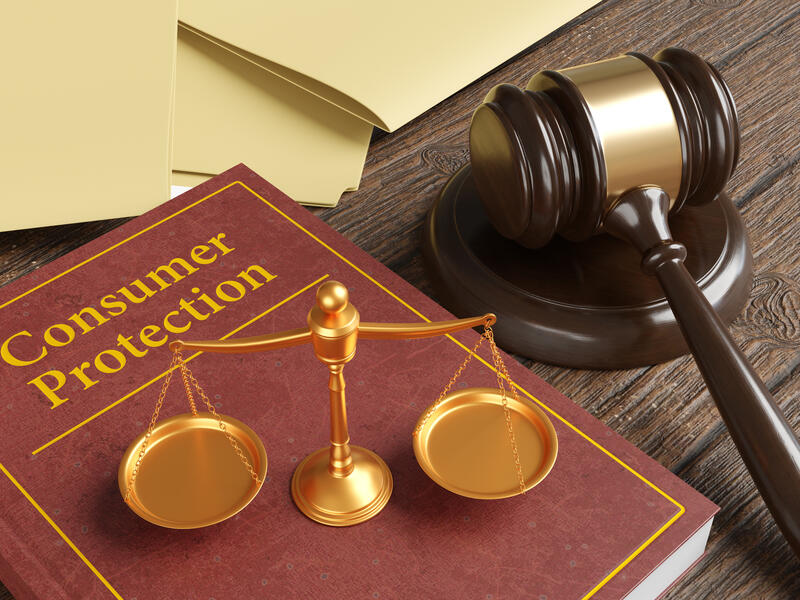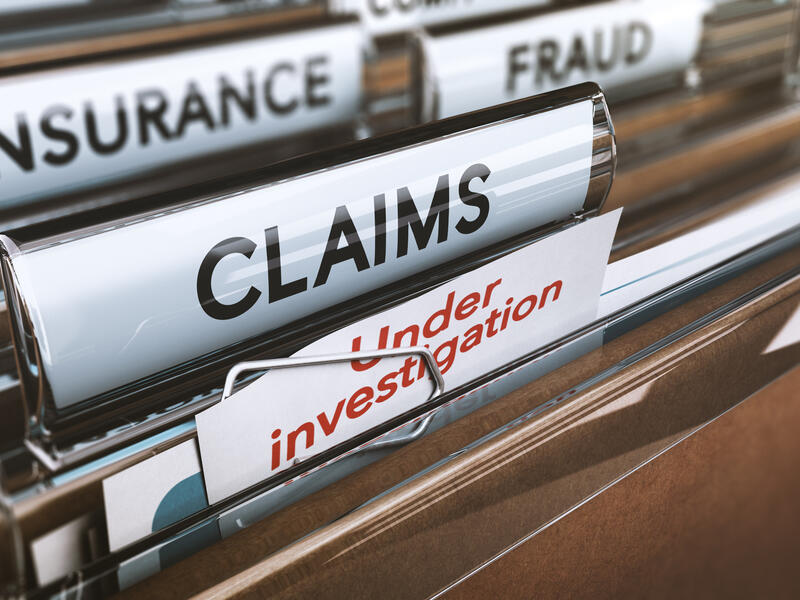Choosing a Reliable Repair Shop
Ideally, you will find an auto repair shop before you need one. Check for a shop that is convenient to your home and office, and ask friends and family for a recommendation. Use these tips to help choose a shop or mechanic:
- Get recommendations and look for reviews of the auto repair shop. Ask family, friends, and co-workers for recommendations. Call the Better Business Bureau and local consumer organizations to check the shop's reliability and performance or see if any complaints have been filed.
- Make sure the repair shop has experience working on your type of car, and look for certifications such as the Automotive Service Excellence, or "ASE," seal, the American Automobile Association approval, or other trade association memberships.
- Inspect the repair shop and ask questions. Look for a clean, well organized facility and make sure the shop has updated equipment, such as hand held computer scanners and diagnostic software. These systems and tools are necessary to diagnose and repair your vehicle accurately, which will save you money. Ask if they use brand name parts, because they are often better quality and may come with warranties. Choose a facility that provides a customer satisfaction policy, as well.
- Get a written estimate for repairs and storage charges. If your Massachusetts automobile insurance is covering the costs of repairing your vehicle, the automobile insurance must also cover the "reasonable" costs of storage. Check to see how much your insurance company will pay to store your car, and compare that with how much the shop will charge you.
- Get a second opinion if you are wary of unnecessary repairs. Some mechanics may offer low prices for a basic brake job or oil change, and then "discover" several defects while they are servicing your vehicle. If you question the mechanic's diagnosis, get a second opinion from another mechanic before you agree to have the work done. This may take extra time, but you could wind up saving a lot of money. Start with simple repairs to test the shop's integrity and competence.
- Check out the old and replacement parts. You have the right to your old parts back if you request them. If the repair shop must return the old parts to the parts manufacturer or another entity under a warranty arrangement, then you have the right to inspect the parts before they are returned. Do they look worn or otherwise in need of a replacement? Confirm any of your doubts with another mechanic. You also may want to ask in advance to see the boxes for the new parts. Be sure that you do not receive an aftermarket or used part if you are being charged for a new one or one from the original equipment manufacturer (OEM).
- Know your warranties. Ask if the repair shop offers a repair warranty on parts and labor, or if the parts come with a warranty. Under Massachusetts law, you have the right to have shoddy work repaired at no charge.
Using a Registered Repair Shop
Any auto body repair business in Massachusetts that engages in damage repair for compensation must obtain a Motor Vehicle Repair Registration from the Division of Standards (DOS). Damage Repair is defined as repairs due to vandalism, theft, fire or any accident or collision. This does not include routine fixes, such as tire rotation, new brake pads, or engine troubles. Auto Body & Collision businesses must obtain an RS number from the Division of Standards while glass repairers must get a similar registration called the RG number.
Customers should always make sure the business they trust their vehicle with is properly registered with the state. A quick check of the Automobile Insurers Bureau’s website will show a link to all of the currently registered repair shops. This data is updated quarterly.
You can also check on a shop’s license status by contacting the DOS.
A properly registered repair shop has a bond or letter of credit for $10,000 posted with the state as part of their license requirements. This bond is there to protect consumers against shoddy repair jobs. If you file suit in court against the repair shop and you win your case, you can send a copy of the court judgment to the Division of Standards. If the repair shop defaults on the payment, the DOS will put you in touch with the business’s bond company for payment of your judgment.
Registered damage repair shops must also have a licensed motor vehicle damage appraisers on their staff. The Automobile Damage Appraiser Licensing Board (ADALB), independent of the Division of Insurance, is responsible for the regulation of motor vehicle damage appraisers in Massachusetts.
Knowing Your Rights
The Attorney General's Auto Sales and Repair Regulations give you some basic auto repair rights.
These regulations apply to all auto repair shops, auto body shops, and retail stores that offer automotive services. Gasoline service stations, which provide only minor repair services (such as changing or repairing tires; replacing fan belts and oil filters; installing light bulbs, batteries, windshield wiper blades, and other minor accessories) are exempt from some requirements.
Your auto repair rights include the:
- Right not to be mislead...
A repair shop cannot lead you to believe that repairs are necessary when that is not the case. It also cannot charge you for repairs that have not been made. 940 CMR 5.05 (1)
- Right to know...
Before getting your oral or written permission to begin the repairs, you have the right to know some basic information. 940 CMR 5.05 (4)
Unless the repair shop posts this information where it can be seen easily, they must inform you:
- about charges for storage;
- about your right to the return of replaced, old parts; and
- about charges for estimates or diagnosis.
- Right to a written estimate before the repairs are made...
Before beginning any work, a repair shop must give you a written estimate listing the specific repairs to be made. The estimate must list the specific parts, labor, and cost of the repairs, unless the charges are posted where they may readily be seen. This written estimate must be signed by you. 940 CMR 5.05 (3)
The repair shop does not need to provide you with this written estimate if:
- they are unable to diagnose the specific problem when the vehicle is delivered to the repair shop, and they obtain your authorization for needed repairs after determining the required work; or
- you bring the vehicle to a repair shop before or after its usual business hours; or
- the repair services are performed off the premises of the repair shop, at your request; or
you sign a written waiver prior to the repair work which reads:
WaiverI understand that I have the right to know before authorizing any repairs what the repairs to my car will be and what their cost will be. You need not obtain approval from me for repairs or inform me prior to performing repairs what the repairs are or their cost, if the total amount for the repairs does not exceed $______.
__________________
Signature
- Right to an agreed upon price within $10...
If it becomes apparent that your car needs repairs other than those that you have authorized, or if the price for performing the authorized repairs will exceed the original estimate by more than $10, a repair shop must notify you and obtain your permission before continuing the work. 940 CMR 5.05 (7)
- Right to same day repairs...
unless you agree to a longer period. If the repair shop can show that the delay was caused by circumstances beyond its control, same-day repairs are not required. 940 CMR 5.05(6)
- Right to an itemized bill...
listing the charges for all parts and labor. If the repair shop bills on a flat-rate charge that is posted in the shop, then it does not have to itemize parts and labor on the bill. 940 CMR 5.05 (9)
- Right to have shoddy repair work repaired at no charge...
A repair shop must fix any repairs it has made on your car that were not repaired in accordance with trade standards. 940 CMR 5.05 (8)
Asserting Your Rights
It's always best to try to resolve disputes with an auto repair shop informally. First, speak with the owner or manager about your concerns, and suggest a solution. If no agreement can be reached, you may need to take steps to assert your rights.
You may want to contact your local consumer group for assistance. Your local consumer group can provide you with mediation services. Mediation allows both parties to reach a mutually acceptable resolution with the help of a facilitator. Mediation is voluntary, requiring both parties consent.
If you are unable to resolve your dispute through mediation, you may decide to take legal action against the auto repair shop by taking the shop to court. To assert your rights under the Auto Repair regulations, as a first step you or your attorney will need to send the shop a 30-Day Demand letter (See Consumer Protection Law below).
If there has been a violation of the Attorney General's Motor Vehicle Regulations, consumers may pursue recourse under M.G.L. Chapter 93A, the MA Consumer Protection Law.
If you believe you may be a victim of insurance fraud, or if you are aware of an instance of insurance fraud, it is important to file a complaint with the Insurance Fraud Bureau of Massachusetts (IFB). The IFB is the state's special fraud bureau. The IFB undertakes cases for investigation and preparation for criminal prosecution.
Finally, cars that are sold with less than 125,000 miles on the odometer at the time of sale may be protected under the Massachusetts Used Vehicle Warranty Law if they have defects that impair the use or safety of the vehicle that appear within the term of protection. Consumers may wish to check their eligibility under the law before paying to have them repaired.
